Tense moment Pete Buttigieg clashes with Republican who called his EV mandate ‘dictatorial’… and said it ‘wasn’t working’
Transportation Secretary Pete Buttigieg got into a heated exchange with a Republican congressman over the Biden administration’s effort to promote electric vehicles.
In 2021, the president signed an executive order setting a goal of having electric and other zero-emission vehicles make up half of new cars and trucks sold by 2030.
Biden has also allocated $5 billion to build fast chargers along major highways. This is called the National Electric Vehicle Infrastructure or NEVI program.
The news comes on the same day as a poll showing that thousands of EV owners have expressed regret about purchasing their cars.
Buttigieg spoke on the House floor on Thursday, clashing with Pennsylvania Congressman Scott Perry over the program, calling it “dictatorial.”
Transportation Secretary Pete Buttigieg has been locked in a heated battle with a Republican congressman over the Biden administration’s effort to promote electric vehicles
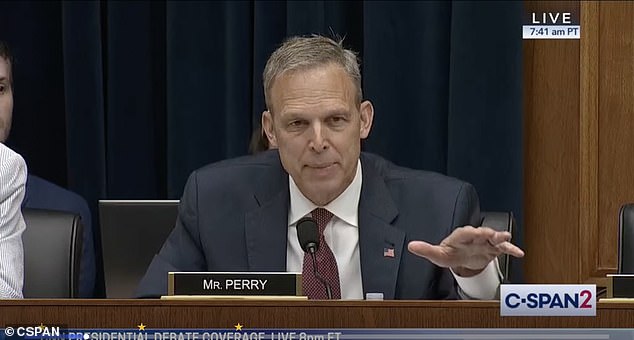
Speaking in the House of Representatives on Thursday, Buttigieg clashed with Pennsylvania Congressman Scott Perry over the program, calling it “dictatorial”
Perry emphasized that Biden’s electric car programs are not working, that electric car sales are falling and demanded that the administration “let the market decide” whether classic gas cars or electric vehicles succeed.
Buttigieg, a former presidential candidate, tried to debunk Perry’s lies in Congress.
“Since time is limited, I will limit myself to discussing the factually incorrect portions of what you said, starting with the claim that these sales are declining, but they are actually increasing,” he snapped.
Buttigieg said that while electric vehicles make up 10 percent of the market, sales could reach 1.2 million by 2023.
Perry then challenged Buttigieg on how many of these sales came from government or private entities.
“We’ll give you a breakdown, but as you know, more citizens are buying electric cars than the government is buying them,” Buttigieg said.
“No, I don’t know. I don’t think that’s factually true,” Perry replied.
Perry angered Buttigieg by claiming that sales are in a downward spiral and that everything being sold is happening with government subsidies.
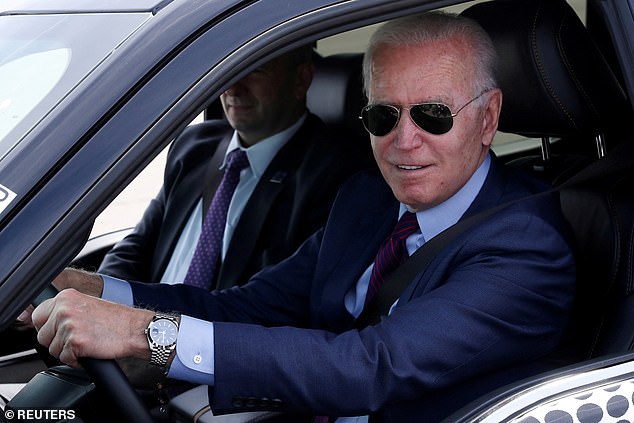
In 2021, the president signed an executive order outlining a goal of having half of new cars and trucks sold be electric and other zero-emission vehicles by 2030
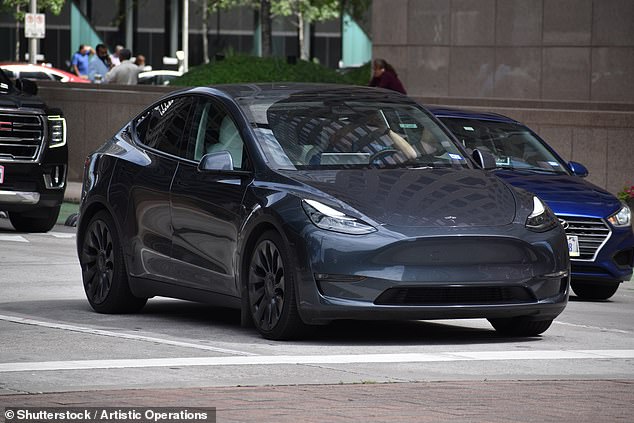
Biden has also allocated $5 billion to build fast chargers along major highways — what’s called the National Electric Vehicle Infrastructure, or NEVI, program.
“Tailspin is a strange word to use for a growing sector of our economy,” he told Perry.
Perry then took a different tactic, saying he’s “not happy with the mandate” and saying Americans “should be able to buy any vehicle they want.”
“There is no mandate,” Buttigieg said.
“You can buy a petrol car if you want to pay petrol prices at the pump, but if you don’t want to, you can buy an electric car with our help.”
The 50 percent target is non-binding and largely symbolic, but it does create expectations that American automakers will begin the transition from building gas-powered vehicles to electric vehicles.
The percentage improvements in emissions and fuel economy that Biden’s new rules require were not immediately clear.
A White House fact sheet revealed that the administration will maintain Trump’s standards for miles per gallon through model year 2024 and for greenhouse gas emissions through model year 2023.
The strategy is part of Biden’s plan to combat climate change. The White House noted that the order put the nation on track to meet Biden’s goal “of 50-52 percent net economy-wide greenhouse gas emissions reductions below 2005 levels by 2030.”
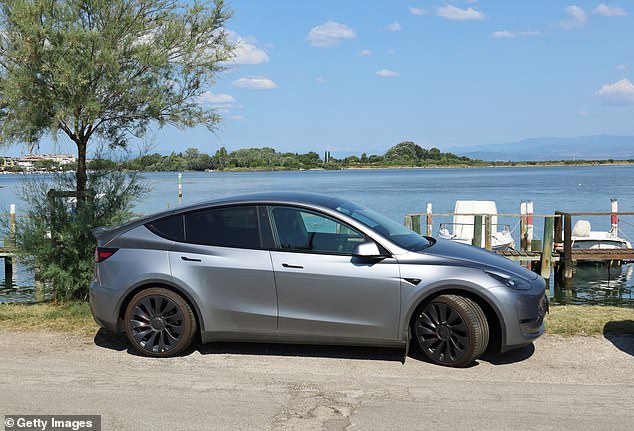
A presentation released in June 2024 by McKinsey & Company found that 46 percent of electric vehicle owners in the U.S. are “very likely” to switch back to gasoline-powered vehicles.
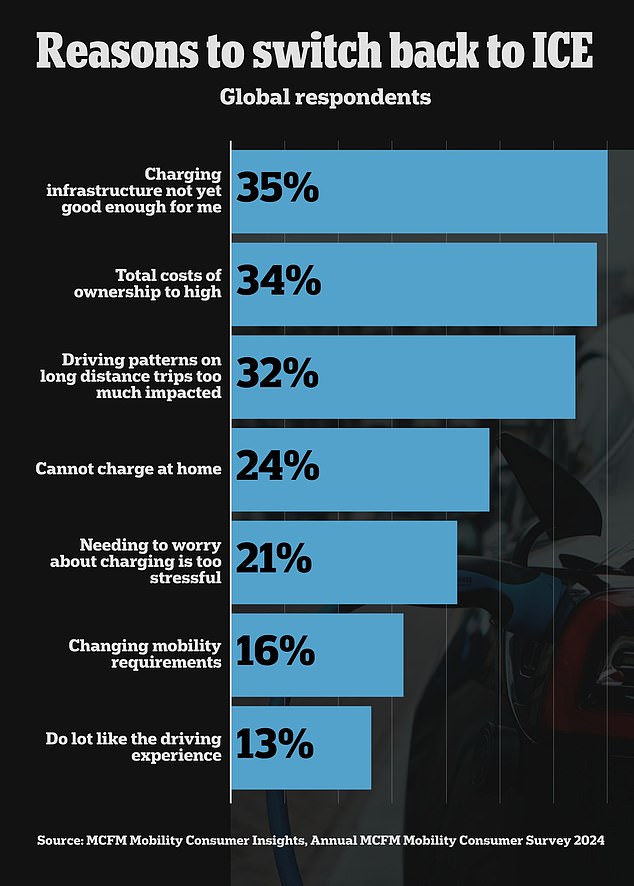
Australia was the only location with a higher percentage of EV owners looking to switch back to gas-powered cars than the US
However, the question is whether the market is really waiting for these vehicles. Many people regret their purchase.
A consumer pulse from McKinsey Mobility presentation A June 2024 report from McKinsey & Company found that 46 percent of U.S. electric car owners are “very likely” to switch back to gas-powered cars.
The data is based on responses from nearly 37,000 participants who own electric vehicles, but the U.S. results surprised the company that conducted the survey.
The US ranked second among the nine countries in the study where the most EV users wanted to switch, with the main reason being the low approval rating of EV charging infrastructure.
In total, 35 percent of respondents globally said they want to switch back to gasoline-powered cars because charging stations are “not yet” good enough.
Additionally, 34 percent of participants were concerned about the high total cost of ownership, while another 32 percent were concerned about frequent charging stops during long journeys.
Other reasons why electric car owners wanted to get rid of their cars included the inability to charge the car at home, the stress of charging the car, changing mobility demands and the overall disappointing experience of driving an electric car.
